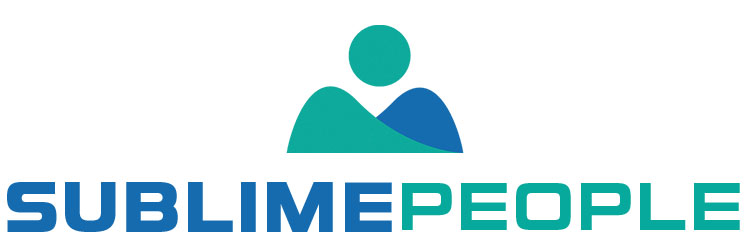Any business is only as good as the people it employs. That’s why it’s critical to have a robust process for screening job applicants. Learning how to screen job applicants will help you find people that meet the requirements for a position.
But what are the best practices for screening candidates? How can you make sure you’re considering all the right factors? In this post, we’ll share 10 tips and best practices for screening job applicants. By following these tips, you can be confident that you’re making the best possible decisions for your company.
In this Article:
What does it mean to screen job applicants?
Screening job applicants is the process of evaluating candidates to determine if they are qualified for a job opening. This process typically involves reviewing resumes, cover letters, and other application materials, as well as conducting interviews. The goal of screening is to identify the most qualified candidates and move them forward in the hiring process.

Benefits of screening job applicants
Screening job applicants can be beneficial to your business in several ways. It can help you quickly find the qualified individuals who are most likely to be a good fit for the position and your organization. Screening also eliminates unqualified candidates, allowing you to focus on those with education, experience, skills, and other qualities that are important to the job.
Why is it important to know how to screen job applicants?
To find the best candidates for a job, it is important to know how to screen job applicants. By asking the right questions and paying attention to red flags, employers can identify applicants who are not a good fit for the position. This helps to save time and resources by avoiding candidates who are unlikely to be successful in the role.
Screening job applicants can also help employers to avoid legal issues. For example, if an employer asks illegal interview questions, they may be liable for discrimination. Therefore, knowing how to screen job applicants is essential for any employer who wants to find the best candidates and avoid potential legal problems.
What are the steps in the screening process?
Job applicants go through a screening process in order to be hired. The candidate screening process is how employers weed out unqualified job applicants from the pool of potential candidates. There are several screening methods that hiring managers can take when screening job candidates.
1. Resume review
Resume screening is a common way of screening job applicants. One common method is to require applicants to submit a resume and cover letter. These documents can provide employers with valuable information about an applicant’s work history, education, and skills.
A resume review involves carefully examining each resume to determine whether the applicant has the qualifications needed for the job. This process involves analyzing data manually and implementing technological techniques to identify qualified candidates according to a job description and match their skills to it.
Several aspects affect resume screening, making the interview process complex. The larger the number of candidates, the longer the wait is going to take. For many recruiting organizations, there can’t be any guarantee that every job application gets enough attention for its merit. To screen resumes effectively, pay attention to:
- Work history
- Education and certifications
- Formatting
- Employment gaps
- Spelling and grammar errors
2. Reading cover letters
When you’re combing through job applications, be sure to request cover letters as well. Reading an applicant’s cover letter can clue you in on their goals and how they might fit into your company. Cover letters also give you a taste of the candidate’s writing skills and organizational abilities.
3. Phone screening
Phone interviews are used to narrow down the large pool of job applicants. This includes calling the top candidates and asking them a few questions before moving forward with an in-person interview. Phone interviews can provide employers with important information about an applicant’s communication skills, experience, and qualifications for the job.
4. Conducting video call screenings
Another alternative is video call screening, which allows you to hear the candidate’s answers and also to see their expressions and body language. Prepare questions in advance as you would for a phone interview, but pay closer attention to how the candidate conducts themselves on screen. This will give you better insight into their professionalism.
5. Interviewing
Interviewing a candidate may prove stressful. Both parties will have to undergo an evaluation to create a positive impression. Therefore, it is important to plan for the screening interviews in advance. Ask questions that get to the heart of how a candidate will interact with your team and fit into your organization’s culture.
6. Skills testing
The ability testing system for the hiring process has grown in popularity. Research suggests that skill tests are an efficient way to determine whether a candidate has a specific skill or not. The skills test lets hiring teams determine if an applicant can pursue a specific position before making an offer. Using a skills exam is the most effective way to screen a candidate early in the recruitment process based on research.
7. Background checks: Searching for more information
This can be done by verifying the information a candidate provided on their resume. Background checks usually consider the applicant’s education records, any charitable or volunteer work they may have done, and even criminal history records.
8. Contacting references
Using a reference check as a method for screening candidates for jobs has become an indispensable part of preparing the hiring decision. Asking for references is a way to get an extra opinion on the applicant’s qualifications and character, which can help you make an informed decision.
Reference checking can help uncover additional information about a candidate’s experience, qualifications, and job performance. It also helps you verify that the information provided is accurate and up-to-date. When conducting reference checks, recruiters should ask fair and consistent questions that are job-related.
9. Searching candidates’ social media
Many recruiters also screen candidates by checking their social media profiles. This may reveal information that isn’t included on a resume, such as how the candidate presents themselves outside a professional context.
However, employers need to be aware of potential discrimination issues when conducting social media screening. They should also ensure they are complying with applicable laws and regulations to protect the applicant’s privacy.
10. Job trials: Challenge the finalists
During employment trials, a company can invite the candidate for skills tests on-site for a few hours or a full day (with payment). To qualify for this award the finalists have to complete a specific task, a crucial responsibility for the job. Job trials can help to understand how candidates are coordinating with others in their company culture.
Tips for screening candidates
To ensure the best talent is hired, it’s important to take the time and properly screen each candidate. Here are some tips for screening candidates:

Know what you’re looking for
Before you look at resumes, take some time to think about the qualities and skills that are most important for the position you’re trying to fill. This will help you create a list of criteria to use during the screening process.
Use applicant tracking systems
You can use an applicant tracking system, a software program used to streamline the recruiting process. This system allows employers to track applicants from start to finish and easily manage their job postings.
Set clear expectations
Make sure that you provide applicants with a description of their role, job requirements, and expectations from the start. Doing so can help avoid any misunderstandings down the line.
Communicate effectively
Stay in contact with candidates throughout the recruitment process. Candidates appreciate when they know what to expect and how the process is going on.
Use multiple methods of assessment
Don’t just rely on resumes–consider using phone interviews, online assessments, and in-person interviews to get a well-rounded view of each candidate.
Take your time deciding
Rushing through the hiring process is one of the biggest mistakes companies make. Give yourself enough time to review all applications thoroughly and make sure you’re choosing the best person for the job.
A word from SublimePeople
Implementing a well-designed screening process is one of the best ways to ensure that you are hiring the most qualified employees for your organization. With so many qualified candidates available, it’s important to set yourself apart from the competition by having a clear and concise way of evaluating potential employees.
Ensure time efficiency within the recruitment process as well as accuracy in terms of finding the right person for your organization. Contact SublimePeople today to learn more about our services!




